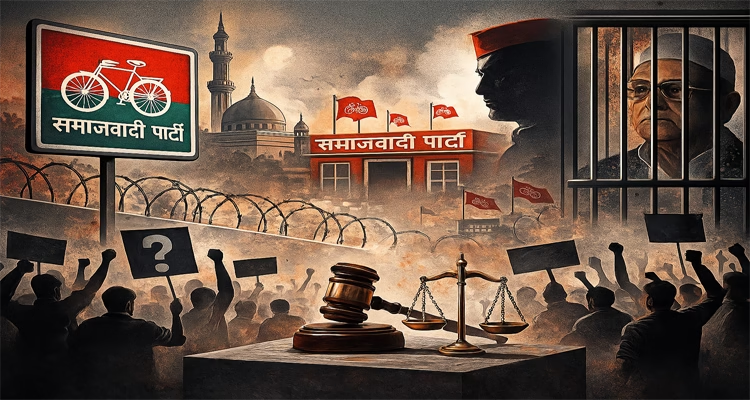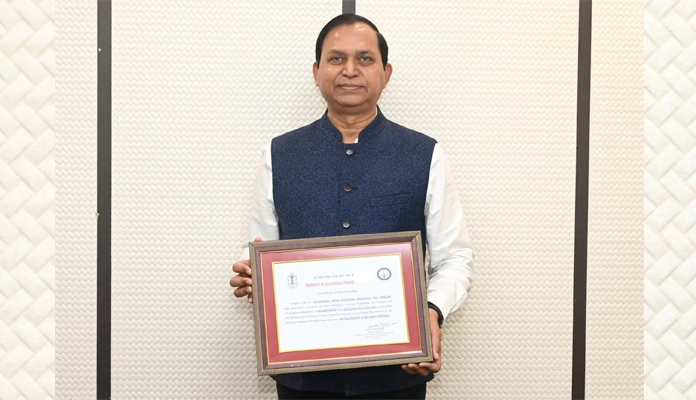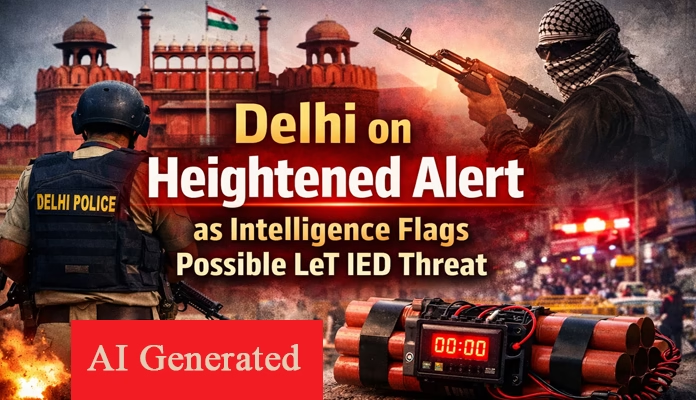 Sanjay Saxena | Lucknow
Sanjay Saxena | Lucknow
For decades, the Samajwadi Party (SP) in Uttar Pradesh has relied on its once-formidable Muslim–Yadav (M-Y) social alliance. Under Mulayam Singh Yadav, the combination appeared unshakeable. But on the ground today, the equation is visibly shifting — and fast.
Across several districts, conversations within the Muslim community increasingly revolve around one sharp sentiment: Muslims have been reduced to voters, not leaders, while the party’s core decisions remain dominated by Yadavs. A common refrain heard in these discussions is: “Yadav malai khayega, Azam jail jayega” — Yadavs will reap the benefits, and leaders like Azam Khan will face the heat.
Azam Khan’s Troubles Deepen the Rift
The treatment of senior leader Azam Khan — once the party’s most prominent Muslim face — has become a focal point of this growing anger. Khan and his family continue to battle multiple legal cases, but SP chief Akhilesh Yadav and other Yadav leaders have largely avoided taking a strong public stand in his support.
Ramzan Alam of Rampur, a long-time Azam Khan supporter, bluntly says:
“Akhilesh ji wants our votes, not our voice. When Azam sahab was in jail, no Yadav leader even advocated for him.”
Similarly, Moradabad madrasa principal Shakeelur Rahman says Muslims should no longer be “used as objects” by any party:
“A party that does not listen to us and does not give leadership cannot be our permanent home.”
Dominance of Yadav Leadership Widens the Gap
Political observers note that Akhilesh Yadav’s leadership circle — from the party organisation to legislative bodies and spokesperson panels — is now crowded with Yadav faces. This has amplified dissatisfaction among Muslims, who no longer see any influential leader of their community in top decision-making roles.
Lucknow-based political analyst Faizul Hasan remarks:
“Akhilesh seems confident that Muslim fear of the BJP will secure their votes. But the new Muslim voter wants representation, not fear-based politics.”
Signals From Bihar and New Trends in UP
The trend mirrors what was first seen in Bihar’s last assembly polls, where a section of Muslim voters distanced themselves from the RJD and shifted towards Asaduddin Owaisi’s AIMIM, especially in the Seemanchal region. Analysts view it as a clear sign that the Muslim electorate no longer wants unconditional loyalty; they want their voice reflected in power.
In Uttar Pradesh too, a similar mindset is taking shape.
Sambhal’s young voter Nadeem Ansari says:
“We won’t be used only to defeat BJP. Whoever gives us participation will get our vote. Abandoning Azam Khan showed that Yadav politics in power is SP’s priority.”
SP Defends Its Record, But Ground Reality Differs
Some SP leaders reject the narrative of exclusion. Former SP MLA Anees Khan insists:
“Muslims and Yadavs are equal partners in SP. Confusion is being spread deliberately.”
But at the ground level — especially in Muslim-dominated pockets of western UP and Purvanchal — the dissatisfaction is evident. Smaller parties like AIMIM or SBSP are gaining traction by promising real representation, not symbolic gestures.
Decline of Representation Fuels Distrust
A key moment that widened the gap was the SP’s 2022 candidate list, which drew sharp questions from Muslim supporters over the limited number of tickets allotted to Muslim candidates. Despite Akhilesh Yadav’s attempt to project himself as a secular counter to BJP, the community feels that their representation has shrunk rather than expanded.
“SP Was Once Like a Family” — Not Anymore
Prominent Muslim academic Dr. Zahid Hussain says Mulayam Singh’s era had created a perception of safety among Muslims, but that trust has weakened:
“If a leader like Azam Khan can be sidelined, what hope is there for the common Muslim?”
He adds that the community now wants genuine leadership opportunities for youth, not fear-based political appeals.
A Turning Point in UP Politics
Across Uttar Pradesh, a decisive shift is underway: Muslim voters no longer see their vote as any party’s permanent right. The earlier politics of “vote out of fear of BJP” appears to be losing its relevance.
The message emerging from the community is clear: respect, representation, and leadership — not just lip service — will decide political loyalty.
And unless the Samajwadi Party introspects, analysts say, it risks losing a partnership that once formed the backbone of its political strength.





